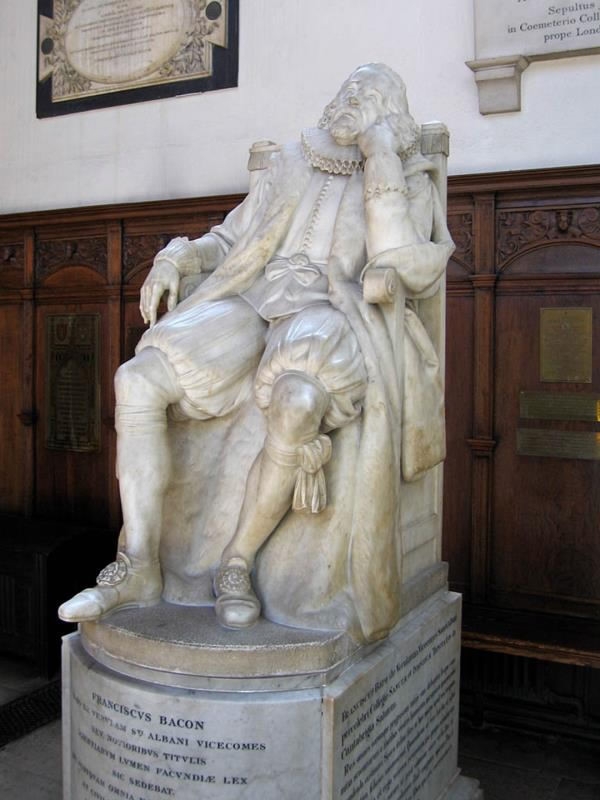Why Francis Bacon’s seminal 1625 essay about reading’s healing power has never been more relevant. - One CGTN editor gives his views on the importance of reading and of an essay by the English writer Sir Francis Bacon.
Of all the flowery answers that could be given on World Book Day to the question about why we read, Francis Bacon’s is among the simplest: We are flawed.
“Nay, there is no stond or impediment in the wit, but may be wrought out by fit studies; like as diseases of the body, may have appropriate exercises,” wrote the English philosopher, statesman and scientist in his 500-word essay “Of Studies” in 1625.
At the age of 64, Bacon thus pledged his faith in studying, arguing that books contain the power to hone not only the mind but also one’s character.

A statue of Francis Bacon in the Trinity College of Cambridge, United Kingdom. Photo/Trinity College Gallery
The passage of nearly four centuries has seen all of the areas that Bacon worked in move on beyond the imagination of even the boldest mind of the 17th century, and there are perhaps more reasons for people today to celebrate human creativity than to worry about character defects.
However, where reason, championed in Bacon’s scientific thoughts, cedes to sensation, the unknown daunts us as easily as it did our predecessors. Time and again we have fallen victim to our own defaults, creating mistakes under delusion, a product of ignorance. Worse, should the delusion capture society as a whole, the consequences will scale up.
Among the sentiments that easily undermine reason, fear has been brought to the forefront as polarized views continue to tear the world apart in a terrifying manner, encouraging self-isolation and hostility. Evidence for this includes a divided European Union due to security concern in the wake of refugees flocking in, on top of a US president who touts building more walls so that his country can be great again.

Supporters of the US president Donald Trump clashes with his opponents, Berkeley, California, April 15, 2017.
From Brexit to a no-longer united “States” to a disagreement which threatens to literally blow up the Korean Peninsula, the repercussions of irreconcilable divisiveness have never been so alarming, attesting to the wisdom in Bacon’s essay that despite huge achievement by mankind, we still need books, among other means of enlightenment.
But reading to seek an immediate panacea for division is another typical human weakness. Bacon knew that the printed word is not a guarantee of quality, nor of truth.
“Some books are to be tasted, others to be swallowed, and some few to be chewed and digested,” he wrote. “That is, some books are to be read only in parts; others to be read, but not curiously; and some few to be read wholly, and with diligence and attention.”
The thinker gives his tips on judging a book even before it is opened.

CFP Photo
Having recognized that the world is imperfect because of the imperfection of its inhabitants, we can be cautiously optimistic about reading: as much as the poisonous divisions have dismayed us, we are bound to be worse without books.
On this, the 22nd World Book Day, it is critical to revisit Bacon’s proclaimed writing on studies for wisdom that may help to haul the world out of the predicament of polarization.
At a time when the world appears to be more divided than ever, the answers may not lie in any text already composed. But to sit down holding a book with hands that could have been clenched and ready to hit is certainly a good first step in the right direction.









